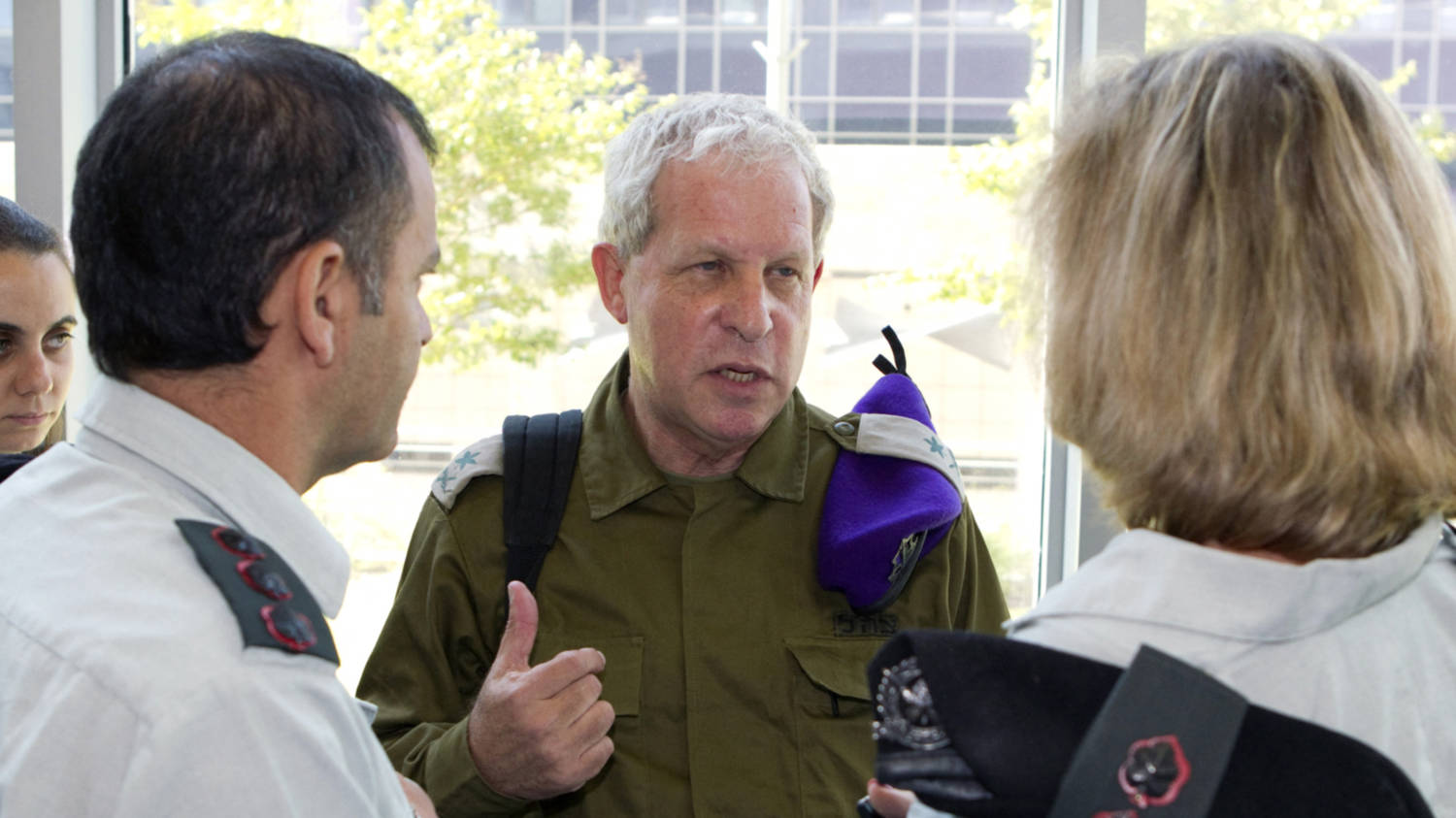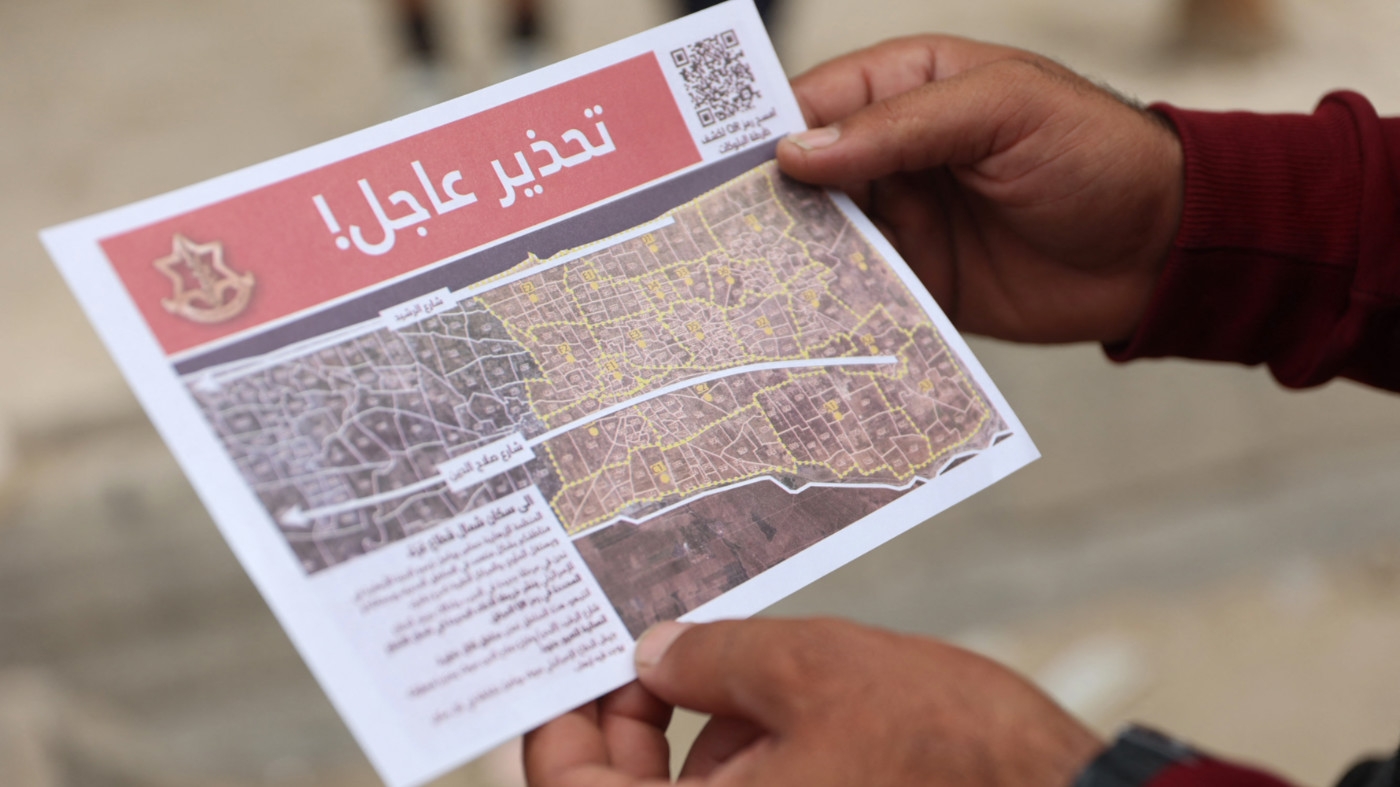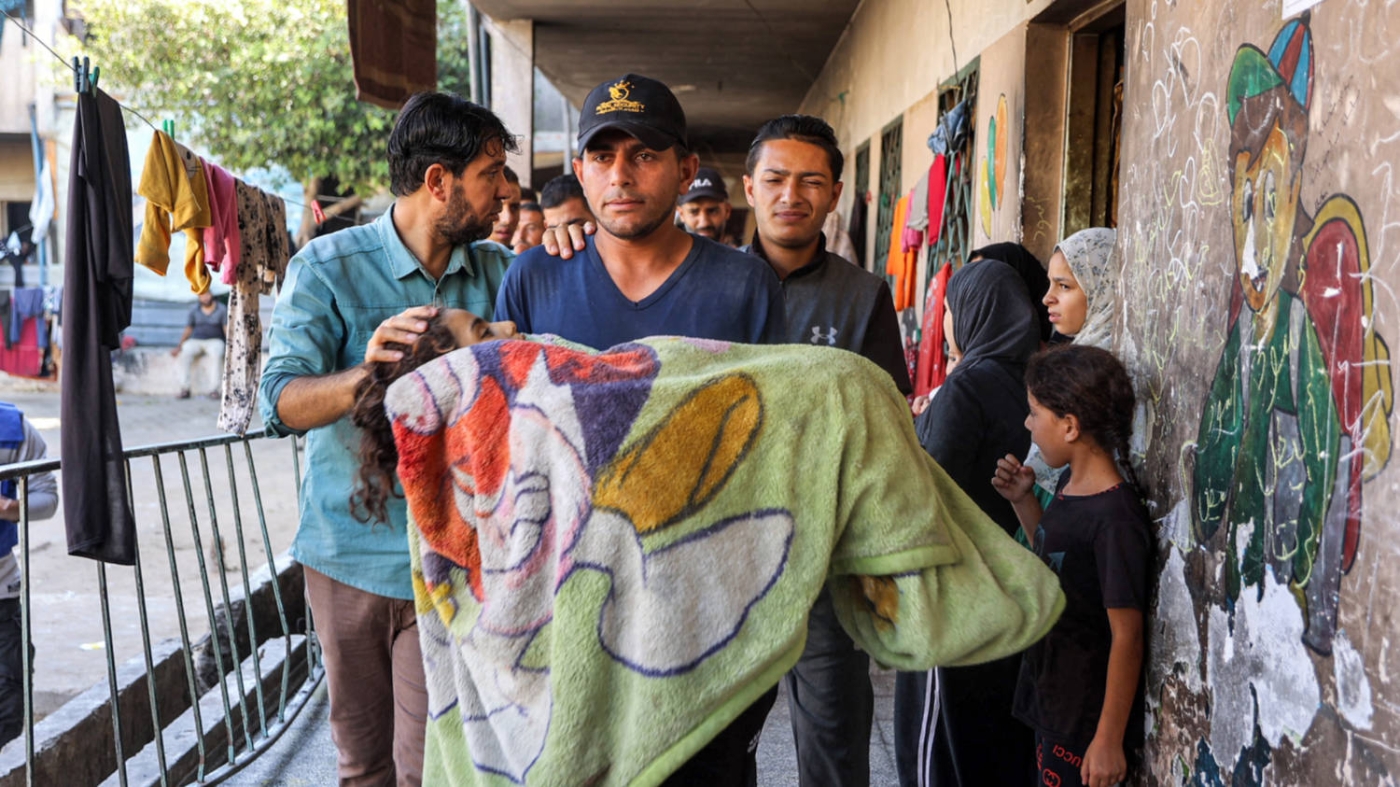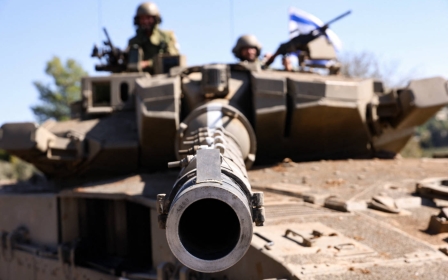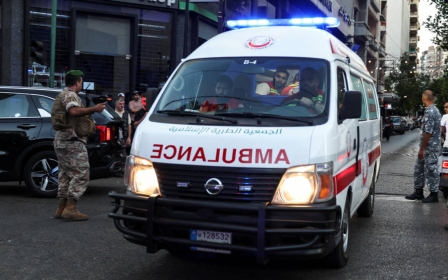What is Israel's 'Generals' Plan' and what does it mean for the war on Gaza?
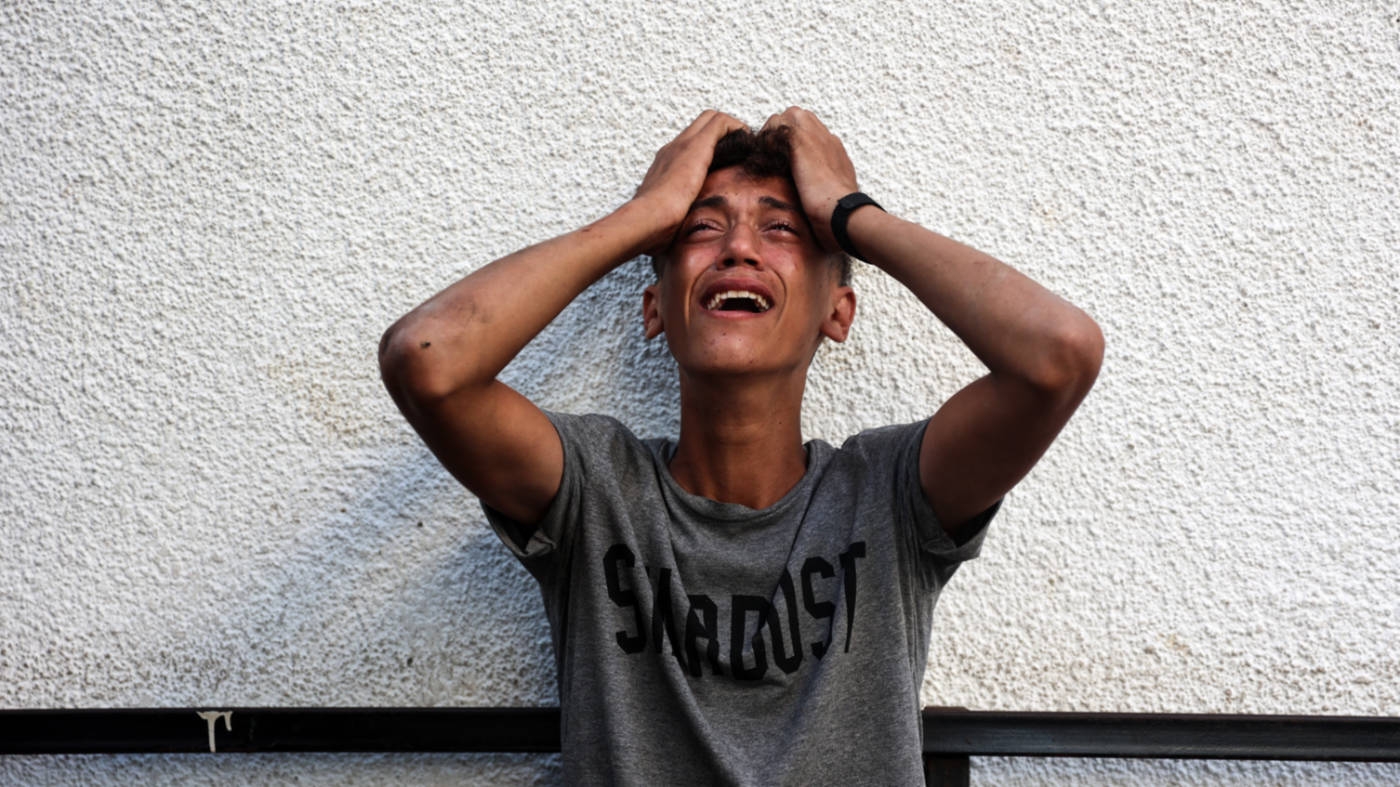
Israel’s war on Gaza has now killed more than 42,000 Palestinians in 12 months, with no end in sight.
In Israel, there has been discontent at the lack of progress, with hostages still held in the Palestinian enclave and a second front opening up for the over-stretched Israeli army with its invasion of Lebanon in September.
Many in the Israeli military and elsewhere are now looking to the "Generals' Plan", also known as the Eiland Plan, to secure the defeat of Hamas. At its simplest, this suggestion by a group of senior reservists, involves ethnically cleansing the northern Gaza Strip of people; and then besieging the region, including stopping the entry of humanitarian supplies, to starve out anyone left, including Palestinian fighters.
Who wrote the Generals' Plan?
The plan was published in late September 2024 by the Forum of Commanders and Soldiers in the Reserves, an Israeli NGO which defines itself as a professional body with more than 1,500 army officers.
New MEE newsletter: Jerusalem Dispatch
Sign up to get the latest insights and analysis on Israel-Palestine, alongside Turkey Unpacked and other MEE newsletters
The forum says it was established with four clear goals:
- Changing the doctrine of war
- Moving from the concept of deterrence to the concept of decisiveness
- The introduction of more offensive officers to the General Staff, which runs the army
- A clear victory against the enemy in all sectors
The group has criticised the strategy of the Israeli army in Gaza since October 2023 and its failure to achieve its war aims.
Who is Giora Eiland?
The central figure behind the plan is Giora Eiland, a retired major general reserve, who was head of the army's operations and planning divisions, and later headed the National Security Council.
Eiland, who was involved in the Arab-Israeli war of 1973, the invasion of Lebanon in 1982 and Operation Entebbe in 1976, is considered centre-left in Israel. In 2023, for example, he supported reservists who refused to report for duty during Israel's judicial reform crisis.
During the current war, he has made headlines several times for calling for the army to take action which may constitute a war crime.
In an interview on 29 October 2023, only weeks into the war, Eiland said that Israel needed to exert much stronger pressure. "The fact that we are breaking down in the face of humanitarian aid to Gaza is a serious mistake... Gaza must be completely destroyed: terrible chaos, severe humanitarian crisis, cries to heaven..."
And in December he suggested that if Hamas was not willing to discuss Israeli hostages then humanitarian aid should be cut in the hope of ultimately deposing the Hamas leadership.
"All of Gaza will starve," Eiland reasoned, "and when Gaza starves, then hundreds of thousands of Palestinians will be angry and annoyed. And hungry people, they are the ones who will bring about a coup against [Yahya] Sinwar, and that is the only thing that bothers him."
Eiland also believes other threats to the well-being of Palestinians should be ignored, such as the possibility of an epidemic. "If such a situation exists, it will actually break Hamas' fighting spirit and shorten the fighting."
Likewise, he has little time for the vulnerable. In November 2023, Eiland said that Israel should not provide any humanitarian aid to Gaza because "after all, who are the elderly women of Gaza - they are the same mothers and grandmothers of Hamas fighters who committed the terrible crimes on 7 October."
What is the thinking behind the Generals' Plan?
The authors of the plan state: "The Israeli strategy claimed that only military pressure would bring the desired results. Today, 10 months or more since October 7 it is safe to say that this strategy has failed.”
This, they attribute to the army’s failure to carry out several actions including "surrounding the combat zones, fully evacuating the population from those areas through passages [and] creating an alternative to Hamas' distribution of humanitarian aid”. It means that while Hamas has suffered heavy losses when under attack, it is still able to recover once the Israeli army leaves the territory.
Therefore, the plan says, "the only way to harm Hamas' ability to rehabilitate itself is to damage one or more of the four elements (money, the ability to recruit fighters, supplies, motivation) that enable its survival over time”.
What is the first stage of the Generals' Plan?
The core of the plan is to stop humanitarian aid reaching northern Gaza; and using starvation as leverage. It has two stages.
The first is the "evacuation of the population from the northern Gaza Strip". This has been part of the thinking of the Israeli military even before the Generals' Plan. In November 2023 the army announced that 95 percent of northern Gaza residents had moved south and were not expected to return.
However an estimated 400,000 Palestinians remain in the northern Gaza Strip. Most of them are sheltering in areas that the army has ordered them to leave and head for the heavily overcrowded al-Mawasi humanitarian zone in the south. Some refugees have relocated more than 10 times.
Moving south, the Palestinians will cross the Netzarim Corridor, an Israeli-created military zone which runs east to west and cuts the Gaza Strip in half.
In February, Channel 14 News reported that a fortified road was being constructed within the corridor, completing the encirclement of the northern Gaza Strip and making it easier to drive civilians from the region.
Shimon Orkabi, commander of the 601st Battalion of the Engineering Corps, which was responsible for paving the road, told the website that one of its purposes was "to prevent passage from south to north and to control it very precisely”.
What is the second stage of the Generals' Plan?
Once Palestinians have been removed from northern Gaza, which the plan anticipates will take a week, the second phase can proceed: the transformation of northern Gaza into a closed military zone.
The area will, says the plan, be subject to a “full and tight blockade, which includes preventing movement to and from it, and preventing the entry of supplies, including food, fuel and water”.
Anyone remaining will be treated as a combatant. The plan's YouTube video states that the Hamas operatives who remain can choose to "surrender or die of starvation”. After that, "it will be possible to enter and cleanse the area of Gaza City with almost no enemy”.
Is the Generals' Plan legal?
The plan anticipates that its legality may be questioned. It states: "Imposing a siege on a besieged enemy is legitimate and permitted under the strictest international law. The condition required for the implementation of the blockade is to give the civilian residents a reasonable opportunity to leave the area through safe corridors before imposing it."
It also cites historical examples when it says similar plans have worked, including during World War Two, when British Prime Minister Winston Churchill “declared his intention to impose a heavy blockade and refrain from bringing food into any place controlled by the Nazis... Not even for the purpose of relieving the local civilian populations”.
What has been the reaction in Israel to the Generals' Plan?
The idea behind the plan, namely Palestinians being driven from their land, has always been popular among the right in Israel. Certainly, this mass movement of Gaza’s population has been one of Israel's declared aims and central goals since the war began.
The expulsion of the Palestinian population has been repeatedly called for in statements by right-wing Israeli government leaders including Finance Minister Bezalel Smotrich and Security Minister Itamar Ben Gvir.
In October 2023, the Israeli Ministry of Intelligence, headed by Gila Gamliel, published a document recommending "the evacuation of the Gaza population to Sinai... and not to allow the population to return to activity or residence near the Israeli border."
The following month Avi Dichter, the agriculture minister, called for another Nakba to be carried out in the Gaza Strip, a reference to the forced expulsion of 750,000 Palestinians in 1948 when the state of Israel was created.
In an article on the Seventh Eye website in late October 2023, Evyatar Matania, head of the security studies programme at Tel Aviv University, stated that Israel's strategic goal in Gaza should be "the complete destruction of Gaza City, along with everything north of it in the Gaza Strip, the planting of October 7 Park on its land, and the reduction of the Gaza Strip to its southern part only".
The Gaza Strip plan, according to Matania, "will be carried out with a broad transfer of the population southward, the occupation of the area between Gaza and the southern Gaza Strip, its isolation and then the complete destruction of the city." The article has since been removed from its website.
In early November 2023, Aluf Benn, editor of the liberal newspaper Haaretz, wrote: "Israel's main strategic move in its war against Hamas is the expulsion, even if temporary, of the population of Gaza to the southern Gaza Strip and the destruction of the city".
At the end of November, the Israeli news website Ynet reported that "efforts (by the army) are being made to evacuate the remaining residents, mainly in the eastern neighbourhoods of Zaytun, Shuja'iyya and Jabalia. The residents are not expected to return to the northern Gaza Strip during the fighting."
What do Israeli politicians think of the Generals' Plan?
After the plan was published, several mayors appealed to Yuli Edelstein, chair of the high-ranking Knesset's Foreign Affairs and Defence Committee, to invite Eiland to give evidence at a hearing.
Before the committee, Eiland said: "I prefer that in a year there will be a situation in which the entire northern Gaza Strip will be occupied territory."
He also highlighted how the plan need not draw on high levels of military personnel.
The plan also received support from 27 Knesset members from the coalition, who signed a letter calling on Prime Minister Benjamin Netanyahu to adopt its implementation. Avigdor Lieberman, leader of the centre-right opposition party Yisrael Beiteinu, also expressed support.
Speaking before the same committee on 22 September, Netanyahu said that the plan made sense.
When will the Generals' Plan begin?
Many observers believe it has already begun.
Israeli media reports throughout September that support was growing within the army for the plan. On 9 September, Eliezer Toledano, head of the army's strategic division, informed government ministers that the army was already formulating plans to take over the distribution of humanitarian aid.
The UN reported on 11 October that "no food aid has entered there [northern Gaza Strip] since 1 October" and the main crossings to the areas have been closed.
Avichai Edrei, the army’s Arabic spokesperson, issued an evacuation notice for residents of Jabalia, Beit Hanoun, Beit Lahiya and other areas of Gaza City on 7 October 2024.
Two days later, the Israeli army launched a major attack on the Jabalia refugee camp in northern Gaza. Simultaneously, the army issued evacuation orders for three hospitals.
Given widespread support for the plan from the Israeli government and the military, the question arises as to whether the army will soon try to make it a goal - and occupy the northern Gaza Strip.
Channel 13 TV reported that "the army is trying to push 200,000, 300,000 Gazans south of Jabalia and Hamas is trying to prevent them [from doing so]."
According to Haaretz journalist Amos Harel, the current operations in northern Gaza have been formulated by the Southern Command. But while the overlap with the Generals' Plan is clear, the Israeli military says that "the plans currently underway do not include the extreme elements of the Generals' plan".
Middle East Eye delivers independent and unrivalled coverage and analysis of the Middle East, North Africa and beyond. To learn more about republishing this content and the associated fees, please fill out this form. More about MEE can be found here.


